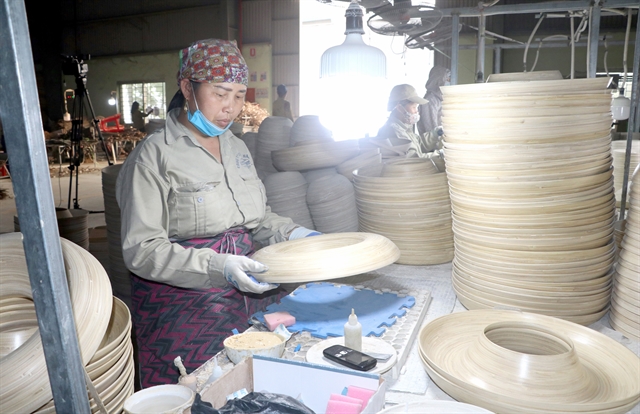 Economy
Economy

Professor Đinh Trọng Thịnh, a senior lecturer at the Academy of Finance, talks to Hải quan (Customs) newspaper on revenue tax reductions for enterprises in 2020

|
Đinh Trọng Thịnh. — Photo daidoanket.vn
Professor Đinh Trọng Thịnh, a senior lecturer at the Academy of Finance, talks to Hải quan (Customs) newspaper on revenue tax reductions for enterprises in 2020
How do you respond to the National Assembly’s decision to reduce 30 per cent of the revenue tax for any enterprise which has revenue less than VNĐ200 billion (US$8.7 million)?
According to statistics, small and super-small enterprises in Việt Nam nowadays account for over 90 per cent of all enterprises still operating in the country. They are the main pillar in the country’s economic development and its stability. However, they are vulnerable when the national economy and the business environment face big changes, as well as to competitive pressure in the course of international integration. Even in a normal situation, the financial gain margin is always smaller than that of other businesses.
So the submission of the Ministry of Finance’s proposal to the National Assembly to slash 30 per cent of the enterprise tax for small and super-small enterprises is an encouragement to them.

|
| Workers at Nam Hải Company in the northern province of Nam Định make bamboo products for export to Europe. The province has extended the tax payment due for more than 760 enterprises who have been affected by COVID-19 pandemic. VNA/VNS Photo Văn Đạt |
Can you talk a bit further about the role and significance of the NA decision?
The decision has three major impacts.
First, the slash of 30 per cent of the tax has a great significance for them and it will be a motivation for enterprises to quickly stabilise their business/production. As a result, the enterprises will have a chance to renew themselves and to upgrade their equipment and technology to raise their productivities.
Second, it is an occasion for enterprises to look for people with labour skills and high motivation to change their production chains
And third, when investors see the high motivation for changes in workers it will be an important driving force for them to invest more in the enterprise and help the Vietnamese economy become a high industrial economy.
Will the National Assembly’s decision have some negative impacts on the country’s tax collection?
No doubt about that! Among enterprises operating in Việt Nam, most of them are small and super small enterprises. So the decision to slash 30 per cent of the tax for small and super small enterprises will reduce budget collection in 2020 by at least a third compared to the previous year. We all know the State budget comes from the collection of various taxes and fees, including the environmental fee. However, in Việt Nam the environmental fee is much smaller than that of many other countries.
Besides, when the National Assembly decides to reduce the enterprises’ income revenue taxes, it will encourage them to increase their investment and expand their production scale.
In the first stage following the reduction of the enterprises’ revenue tax, the State budget will face certain challenges, yet will become a driving force for us to cut public spending. Recently, our public spending has gone up considerably and it has become a big burden for the national economy. So, the tax reduction will become a driving force for Việt Nam to continue its administrative reform and to slash public spending. This, of course, will become a driving force to raise the State revenue in the years to come. VNS
Download the 'Việt Nam News' app to read our newspapers everyday




